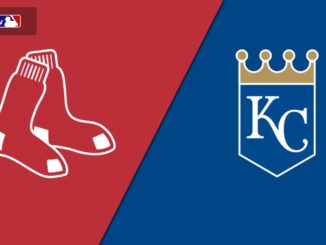
Around Major League Baseball, the offseason brings a wave of decisions from players and teams alike. Contracts expire, roster spots change hands, and players at every level evaluate what their future might look like. The Boston Red Sox are one of many franchises experiencing turnover, particularly within their minor league system.
A number of players who spent last season in Boston’s organization are now choosing to test the open market rather than return for another year under club control. Among these players is right-handed pitcher Isaiah Campbell, who has officially elected to become a free agent, a decision recorded in his most recent transaction entry.

Campbell’s time with the Red Sox began fairly recently. Boston acquired him from the Seattle Mariners following the 2023 season in a trade that sent infielder Luis Urías to Seattle. At the time, the move was viewed as a noteworthy transaction.
More: Angels-Tigers blockbuster trade get Tarik Skubal, Dillon Dingler in 9-player deal
Campbell was coming off an encouraging rookie season with the Mariners, showing flashes of reliability and poise even though he did not have much big-league experience. In the 2023 season, Campbell pitched in 23 games at the major league level and finished the year with a 2.83 ERA, a strong showing for a first-year reliever. His combination of velocity and command made him an appealing addition to a Boston bullpen that desperately needed upside.
However, his follow-up season in 2024 did not unfold the way either Campbell or the Red Sox had hoped. Injuries became a recurring problem, limiting his availability and preventing him from finding any sort of consistent rhythm.

Instead of working steadily as part of Boston’s bullpen, Campbell bounced between Triple-A Worcester and the major league roster, appearing in fewer games overall than expected. Across both levels, he pitched in only 22 total games, a significant drop from the workload many relievers handle when healthy.
More: Orioles Officially Lose Top Utilityman to Free Agency
While his performance in Triple-A was admirable—he posted a 2.20 ERA over 14 appearances during his time there—his outings in the majors were far more difficult. In his limited big-league action, Campbell struggled to locate his pitches effectively and find the confidence that had defined his 2023 season.
Over eight games with the Red Sox, he surrendered 12 earned runs, a dramatic contrast to the promising numbers he had posted the year prior. Those struggles ultimately led to the team designating him for assignment, a procedural move that removed him from the 40-man roster.
After being designated for assignment, Campbell chose to enter free agency rather than remain bound to Boston’s minor league system without a guaranteed path back to the majors. Interestingly, the Red Sox re-signed him on a minor league contract not long after, indicating that the organization still believed there might be untapped potential in his arm.
Yet even with a second opportunity within the system, he was unable to regain the form he showed in Seattle. In the games he pitched for Boston in 2024—just six total appearances—he allowed six earned runs across 7⅔ innings, leaving his ERA inflated and his role uncertain.

His struggles extended beyond the major league roster. While he did remain healthy enough to pitch more frequently in Triple-A Worcester, where he accumulated a full season’s worth of work, his performance was uneven.
Over 43 Triple-A appearances, Campbell posted a 3.90 ERA, a number that reflects neither dominance nor disaster, but rather inconsistency. His inability to consistently command his pitches or produce scoreless innings became a recurring theme. For someone who had once been a rising prospect with a promising trajectory, the season became a frustrating grind.
On October 16, toward the end of roster maintenance season, the Red Sox decided to outright his contract to Worcester once again, removing him from the 40-man roster. At that point, Campbell had a choice: either remain with the organization in a minor league role or explore free agency. On November 6, he exercised his right to test the market.

Campbell now enters free agency at a crossroads. There is always the possibility that he could return to the Red Sox on another minor league deal, much like he did after last year’s designation. Teams often re-sign players they outright when those players have positive relationships with the organization or when club officials still believe improvement is possible.
More: Ha-Seong Kim sign $16 million one-year deal with the Braves
Boston could very well be open to a reunion if Campbell is willing. But from the player’s perspective, after spending nearly two consecutive seasons without meaningful major league success, exploring a change of scenery could be appealing.
Campbell has already shown at least once that he can pitch effectively at the major league level. During his rookie season with Seattle, he demonstrated the ability to miss bats, limit damage, and handle high-leverage situations without appearing overwhelmed.

Those attributes made him valuable enough that Boston was willing to acquire him via trade. When a player does something once, even in a small sample size, it signals potential. For that reason, another club—particularly one with bullpen openings or a strong pitching development system—may be willing to take a chance on him.
More: Mets’ 1.63 ERA Star to Earn $60M Contract After Exiting Deal
The other factor working in Campbell’s favor is his background as a prospect. According to MLB Pipeline, Campbell ranked as the No. 17 prospect in the Mariners’ farm system heading into the 2023 season. That ranking is not insignificant.
It indicates that evaluators saw real talent in him—a projectable arsenal, a competitive mindset, and the tools needed to carve out a meaningful MLB career. Prospects who appear on organizational rankings are generally players with standout traits, and for Campbell, his combination of a strong fastball and an effective secondary pitch helped him rise through Seattle’s system relatively quickly.

Yet despite that upside, consistency has eluded him. Whether due to nagging injuries, mechanical issues, or the pressure of repeated transitions between levels, he hasn’t been able to harness his ability often enough to secure a permanent spot in a major league bullpen. The raw stuff remains—there are scouts and coaches throughout the league who would attest to that—but baseball is unforgiving.
Talent alone does not guarantee long-term success. The sport rewards repetition, mental resolve, and the ability to make adjustments in real time. Campbell’s journey shows how challenging it can be to translate potential into production.
More: Mets Blockbuster Trade Proposal Brings $500M Ace to Queens
That’s why the next step of Campbell’s career is so significant. Entering free agency gives him the opportunity to seek out a team that believes it can unlock his best version. Some organizations excel at reviving careers of pitchers who were once prospects but lost their way.
Tampa Bay, Cleveland, San Francisco, and several others have built reputations on identifying pitchers with unpolished talent and helping mold them into reliable contributors. Campbell could become a free-agent target for such clubs, especially if he is willing to accept a minor league deal with an invitation to major league spring training.

The Red Sox, on the other hand, have decisions of their own to make. Their bullpen remains a work in progress, and while they do value depth, space on the 40-man roster is limited. If Boston wants to keep Campbell in the organization, they would need to envision a clear developmental plan for him.
They would need to determine whether their pitching infrastructure can support his improvement better than another team’s system might. After two seasons of middling results, re-signing him would require more than just optimism—it would require evidence that change is possible.
More: ‘Absolutely Stunning News’ Mariners clears way to an overlooked infield solution
From Campbell’s perspective, free agency offers both uncertainty and freedom. He can pursue a team where he sees opportunity instead of feeling stuck in the same cycle. Sometimes, a new voice in a pitcher’s development, a different catcher behind the plate, or even a different ballpark environment can help unlock better performance.
In summary, Isaiah Campbell’s journey over the past two years illustrates the fragile nature of opportunity in Major League Baseball. Less than two seasons removed from being a rising rookie in Seattle and a top-20 organizational prospect, he now stands at an important crossroads. He has the talent and past performance to draw interest.
Whether that leads him back to the Red Sox or to a fresh environment elsewhere remains to be seen. For Campbell, the 2025 season represents a critical chance to reestablish himself—and to prove that the promise he showed in Seattle was not an outlier, but the beginning of a career that still has room to grow.



Be the first to comment